
Nurofen for the children and nurofen for children singles contain ibuprofen as active ingredient, which is a NSAID (non steroid anti-inflammatory drug), a painkiller for mild or moderate pain.
Ibuprofen works by blocking the enzyme in the body called COX (cyclo-oxygenase). When the body is injured or ill the response is production of some chemicals, called prostaglandins, which cause pain and swelling. COX is involved in production of prostaglandins, so when we use ibuprofen the pain is effectively reduced. Prostaglandins are also responsible for the fever, and using ibuprofen helps reducing fever.
Ibuprofen can be used to relieve the rheumatic and muscular pain, headache, toothache, earache, and for flu or cold fevers or for the fever after the vaccinations at children.
Do not exceed the recommended dose of the medicine. Medical advice is needed if the symptoms of the illness persist for more than three days. When the child is younger than six months, doctor should be contacted after 24 hours of present symptoms.
If the medication is used to treat the post-vaccinations fever dose is 2,5ml (or 50mg), and another dose (2,5ml or 50mg) after six hours. For persistent fever consult a doctor.
Caution is necessary in: elderly, stomach or intestine disorders, inflammatory bowel disease, kidney, liver, heart problems, high blood pressure, children who have problem with blood clothing or taking anticoagulants, asthma, allergies, systemic lupus erythematosus.
The medicine should not be used in children under 3 months or less than 5kg of weight, children allergic to Aspirin and other NSAIDs, who had asthma attacks, rash, rhinitis, swelling, or bleeding after treatment with NSAIDs. It should not be used if there is an active ulcer, sever heart, liver or kidney condition, or if a child is already using another NSAID. Do not use the medicine if the child had an allergy to the medicine or any of its ingredients, and inform your doctor or pharmacist of the fact. If you think the child is having the allergic reaction, stop the medicine and inform the doctor.
Side effects of ibuprofen are rare and don’t have to show up. Most common are abdominal pain, nausea, indigestion, and they usually disappear when taking ibuprofen with some food. Rare side effects are stomach and intestines bleedings, mostly in elderly taking high doses of medicine. In children, these rare side effects are presented as blood vomiting or bloodstained stool, diarrhea or constipation, and those children should be taken to the doctor.
Very rare there are allergic reactions – severe skin rashes, swelling lips and tongues and narrowing of the airways, then ulcers, bleeding in the stomach, kidney, liver and blood disorders or edemas. If those appear medicine should be stopped and a doctor consulted.
Effects of ibuprofen on other medicines:
The doctor should know about all the other medicine the child is using. Ibuprofen should not be combined with Aspirin or any other NSAID, nor COX 2 inhibitors, because it increases the possibility of stomach and intestinal problems.
If taken with prednisolone, warfarin, antiplatelet medicine, SSRI antidepressants or venlafaxine there is a risk of ulceration or bleeding.
Increased risk for kidneys is possible if ibuprofen is taken with ACE inhibitors, ciclosporin, diuretics or tacrolimus.
Ibuprofen may increase the risk of side effects of digoxin, lithium or methotrexate, and the medication may also oppose the effects of amlodipine, ACE inhibitors or beta-blockers on lowering the blood pressure.
Ibuprofen should not be used for 8 to 12 days after taking mifepristone.





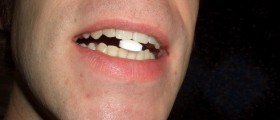
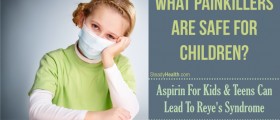
,-Or-Ibuprofen-Which-Over-The-Counter-Painkiller-Should-You-Choose_f_280x120.jpg)
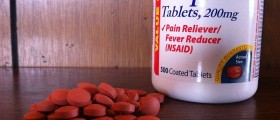
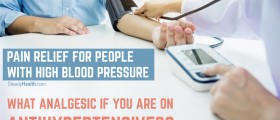
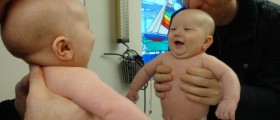






Your thoughts on this
Loading...